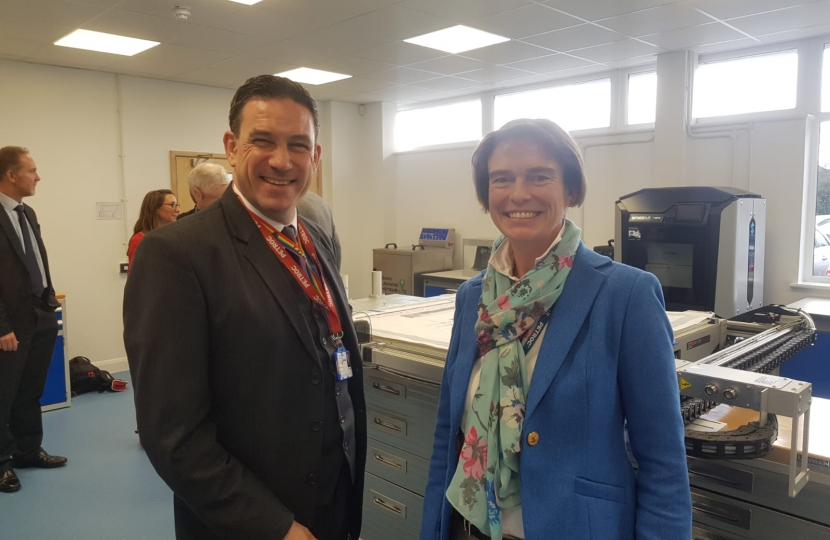
Adults and young people across the country will benefit from more high-quality and flexible education and training – levelling up opportunities and supporting more people into higher skilled, higher wage jobs.
£150 million has also been awarded to 100 colleges and universities to upgrade their facilities and equipment to boost access to higher technical training and flexible courses in key subjects. Petroc College of Further and Higher Education here in North Devon has been awarded over £23,000. This funding will boost access to higher technical training and help tackle regional skill gaps and begin to level up local economies.
Selaine Saxby, MP for North Devon, said:
“Funding like this is key to levelling up our local economies and closing the skills gap – providing opportunity to everyone through education and training programmes ensures local businesses have the skilled workforce they need to grow our economy.
Petroc do such a great job here in North Devon and now offer so many different courses. As a former teacher, I strongly believe in the benefit of ongoing learning and urge anyone here in North Devon who would like to improve their future job prospects to contact Petroc and see what additional skills they could acquire.”
Education Secretary, Nadhim Zahawi, said:
“Ensuring everyone is given the opportunity to reach their full potential, no matter their age or life stage, is a vital part of our mission to level up this country.
These measures, including our new short courses and nine new Institutes of Technology, will boost access to more high-quality and flexible education and training – giving people the chance to learn at a pace that is right for them, while ensuring we have the skilled workforce needed to boost our economy.”
People looking to upskill or retrain will have access to more than 100 short courses starting from September next year, lasting between six weeks to a year, supporting them to space out their studies and learn at a pace that works for them. More than 20 universities and colleges will offer the courses in subjects where there are skills shortages, such as Digital, Net Zero, Education, STEM and Healthcare – offering an alternative to studying a traditional three-year degree.
Additionally, young people starting new T Level qualifications in 2023 in subjects such as Media, Broadcast and Production, Animal Care and Management and Catering are also set to benefit from over £150 million investment to upgrade teaching facilities and equipment.
The Department for Education has also confirmed that students studying courses including T Levels will benefit from an extra £615 million cash boost in the 2022-23 financial year so every young person can continue to access the training they need to succeed. The cash injection will see per student funding boosted by over 8%. This includes funding for an extra 40 hours of education per student to help them catch up on lost learning due to the pandemic. On top of this, funding for high value courses – those that deliver the skills that the country needs and which can lead to higher wages for students – and high cost courses including building and construction will also be increased.
Student finance will also be available to students taking the courses, marking the next step in the development of the government’s Lifelong Loan Entitlement, which, from 2025, will provide individuals with a loan entitlement to the equivalent of four years of post-18 education they can use flexibly over their lifetime.
Colleges, schools and sixth forms delivering T Levels can bid for a share of over £150 million – from the fourth wave of the T Level Capital Fund. The funding will be used to refurbish buildings and facilities, including creating training kitchens for catering students, studios for media students, and facilities for agricultural courses such as trainee milking parlours or labs to learn about land science in readiness for students starting courses in September 2023.
The Chancellor announced in the Budget that an extra £1.6 billion would be invested in 16-19 education and training by 2024-25 compared with 2021-22 financial year. Today the Department for Education has published details of how £615 million of that funding will be invested next year.


